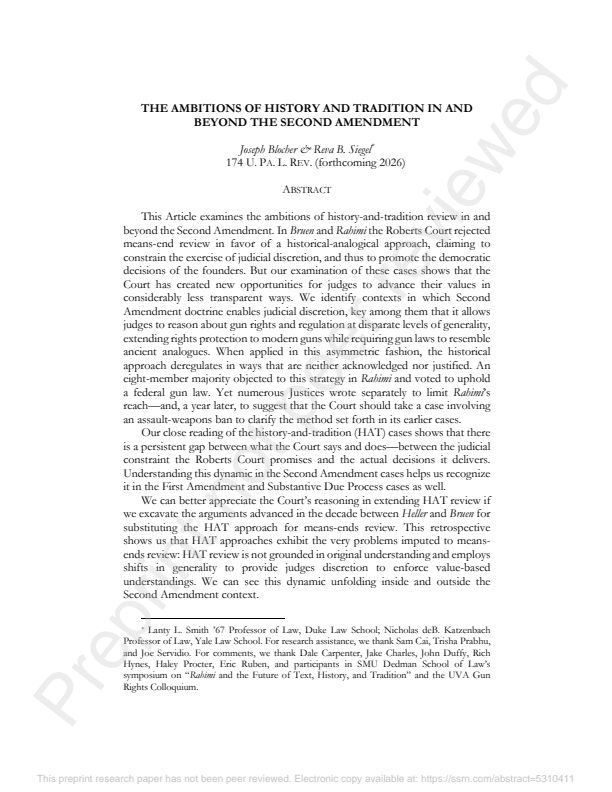By Ian Ayres and Fredrick E. Vars
In a substantial majority of states, invitees may bring concealed weapons onto private property unless the owner expressly tells them that firearms are not allowed. Five states after the Supreme Court’s Bruen decision flipped the presumption, enacting statutes that prohibit bringing firearms onto other people’s property without the owner’s express consent. These statutes have been attacked as violating the Second Amendment. While the Ninth Circuit upheld the constitutionality of the “no guns” default, the Second Circuit and other lower courts have enjoined application of the law with regard to private property open to the public. This Article, after analyzing the reasoning of the courts, proposes a legislative fix. States can enact “affirmative choice” rules which require commercial establishments, as a condition of doing business, to state whether or not they want their customers to be allowed to bring concealed firearms into their stores. An affirmative-choice requirement avoids constitutional concerns that some courts have had with a “no guns” presumption because the ability to bear arms on private property would only be restricted when the landowner so chooses. Without state action restricting gun rights, the statutes would not meet the Bruen threshold requirement. The Article explains why affirmative-choice laws are likely to better effectuate the preferences of landowners and why such laws would not pose compelled speech concerns.
Yale Law School, Public Law Research Paper,




